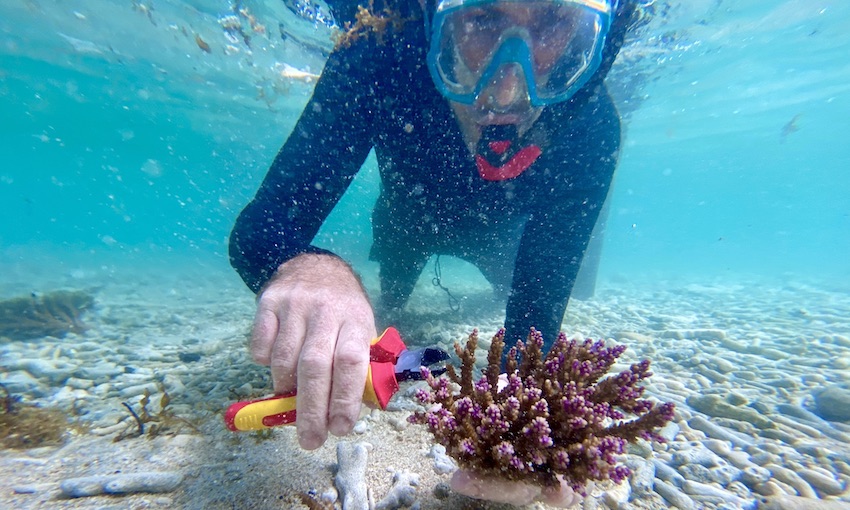ON World Reef Day (1 June), shipping line ANL has spoken about the importance of its work supporting coral reefs including its collaboration with the Reef Restoration Foundation.
The non-profit Reef Restoration Foundation was formed after the 2016 coral bleaching event that affected about a third of the world’s coral reefs, including extensive reef systems adjacent the northern 1000 kilometres of the Great Barrier Reef, north of Cairns.
In December 2020, ANL launched the Reef Recovery Program in partnership with the Reef Restoration Foundation, which seeks to aid in the coral reef’s regeneration and help alleviate impacts of the multiple coral bleaching events that have occurred in the last few years.
CEO of Reef Restoration Foundation, Ryan Donnelly, said, “The Foundation aims to accelerate the natural process of recovery by growing fragments of fast-growing coral on tree frames suspended in the water column. Here they gain greater and prolonged access to sunlight for photosynthesis and grow at an accelerated rate.
“Once the fragments have grown into sufficiently robust, semi-mature colonies, the Foundation plants them back onto the reef.”
Mr Donnelly says that one of the most important responsibilities for the Foundation is outreach and community awareness.
“It is the role of explaining what we do and why within the context of the larger sphere of action on climate change and building ecosystem resilience.
“This includes rallying communities and outlining how individuals and organisations can become involved, which was a key driver of our own success in leading policy change to permit our activity within The Great Barrier Reef Marine Park,” he said.
Coral reefs have the highest biodiversity of any ecosystem on the planet. They occupy less than 1% of the ocean floor yet are home to more than 25% of marine life – playing a critical role in maintaining stability in a coastal zone.
Coral bleaching is a sure sign of warming. When sea surface temperatures rise beyond critical thresholds, corals become stressed and expel the algal symbiont that nourishes them and provides their colour. If the stressful conditions persist for more than a month, the corals can die, causing detrimental effect for other species of marine life.
Chief executive of ANL Shane Walden said, “As an Australian-based organisation with a strong focus on sustainability, ANL feels a responsibility to assist with coral regeneration and contribute to the solution for a healthy Great Barrier Reef.
“In such critical times, it is crucial for both businesses and individuals alike to bound together and mitigate the impacts of coral bleaching through donations and day-to-day activity.”
Establishing a fast-growing coral nursery just off the coast of Queensland at Fitzroy Island, ANL’s coral nursery has been maintained by a team of experts throughout the year to produce mature coral and be placed back on the Great Barrier Reef. The nursery is on track to produce up to 3000 coral fragments in its first year.
In addition to this nursery in Australia, the CMA CGM group will soon extend the reef restoration program to other places around the world, namely, the Indian ocean, the Philippines and the Caribbean Islands.


